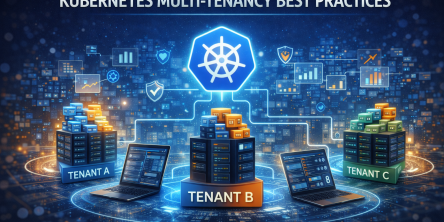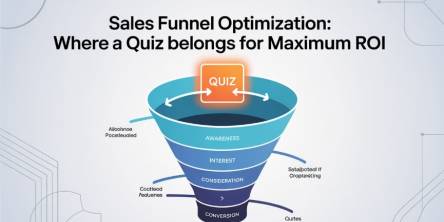How to Automate HIPAA Compliance with DevOps?

Introduction to HIPAA
HIPAA compliance is the Health Insurance Portability and Accountability Act of 1996 that is provided by the US government to safeguard and provide security provisions to the medical information of employees of various organizations. The act came into existence just to provide protection from proliferating health data breaches through cyber-attacks and ransomware. Bill Clinton passed this act to provide protection to the patient’s data like their phone number, email address, a medical record number, driving license information and others.
In this article, we will discuss the HIPAA automation process and its requirement for the organizations.
Many organizations have automated their HIPAA compliance and other standards. Tech-savvy business organizations have automated their core business processes that may include validation of insurance information, private information, record management, and medical billing. Many healthcare organizations have automated their processes with legacy systems like Paragon and Mc. Kesson.
Why Automate HIPAA?
Healthcare organizations and their partners have known the value of automation and are delivering better patient care and therefore achieving their goals in an improved manner. Their workflow has been highly streamlined through automation process that they use to protect patient’s data, secure FTP functions that use passwords, certifications, keys, explicit/implicit solutions, and encryption and decryption protocols with open PGP, keys, passphrases and PGP certificates.
HIPAA Compliance Automation
Through HIPAA compliance automation the hosting service providers can deploy and provision infrastructure as a code that has minimal human involvement. Here the automated process is thoroughly revised, updated and tested. Through automation, the healthcare organizations enforce a HIPAA compliant with full flexibility.
Some organizations are using DevOps concepts where they have the team of software developers and quality assurance professionals. Through DevOps teams, they can reduce the lead time and have a continuous delivery environment. DevOps in Healthcare organizations can streamline the physical, administrative and technical safeguards that are the key aspects of implementing HIPAA.
HIPAA and DevOps
Planning
Every healthcare organization may have different requirements and expectations while implementing HIPAA. The expectations and requirements need to be resolved by the service provider in a timely manner which sometimes is not possible. Service providers may not always provide a perfect and standard solution for all, but through automation, they can create and develop an operation’s baseline.
Here planning plays an imperative role that helps all the stakeholders to understand the technical solutions and gather entire critical information of unique architectural aspects.
However, you cannot automate complete workstream in one shot and may also require some human involvement, but still, the inclusion of DevOps can help you in the early planning stage of HIPAA compliance and you can create accurate playbooks easily.
Advance planning can help you in defining network security layout and healthcare client’s virtual private cloud. You can easily plan and take the help of network service to provide proper protection and privacy service.
Provisioning or Conditioning
Now after planning the next step for the organizations is to write the automation playbooks for implementing IaaS. Several provisioning applications are Chef, Puppet, Google Deployment manager and Terraform. These playbooks are written in a well-known scripting language that may be Python, JSON, and YAML.
The code that is written in a scripting language is machine readable and interact with the API front of the cloud provider, where the cloud provider may be AWS, Azure or Google and the code can be on VMware vSphere cluster or maybe on-premise
Here the DevOps engineer selects their cloud provider and defines and configure the environment variable according to their cloud requirement to create an IaaS environment. For this purpose, the first step is to create and configure the connection variables and then the cloud provider’s location, region, and availability zone is defined along with encrypted account passwords.
For all of the designing stages it is important to define ePHI data that is stored and processed and for this, there should be step by step guide and documentation. Here at this stage, technical safeguards are also incorporated that are server access control, the introduction of activity logging and availing auditable controls.
The server hardening policies are usually created for the workstations, active directories and servers to provide the least privileged account authorization at multiple levels that may include account restriction or restriction of a third-party system or any individual. At this step, preapproved software is also installed.
After this step, the boot volume encryption and encryption of storage volumes and disk objects are included in the playbook. This can be easily achieved just by providing a volume ID and encrypted $TRUE statement.
When this playbook is designed then throughout this designing phase testing is conducted to identify and close all the loopholes to create shared VPN, to automate network configuration. These playbooks are the key to implement HIPAA for the organization and are used to create a secure server if VPN is not present.
Continuous Delivery
Organizations can define their healthcare service logbook after streamlining their playbooks. After this, they can use the playbook as a standardized template within their HIPAA environment. The playbook may include storage template, server template and container configuration along with predefined software application.
For continuous delivery organizations can use cloud watch monitoring tools like Nagios, Nimsoft and others to monitor their server resources and application usage. Monitoring tools can pick errors and alert for any predefined thresholds.
Even many organizations use serverless workloads like Kubernetes and Docker. These tools aid the continuous delivery approach of DevOps. The continuous delivery step of DevOps can speed up the delivery time and improve service quality. HIPAA can easily take advantage of this step of DevOps and make the process quick.
Conclusion
In the health sector of US, it is mandatory to implement HIPAA and as we have seen above it not a single step process but is a huge task. By automating the complete process of HIPAA implementation the organizations cannot only streamline their insurance process but also speed-up their services.
Similar Articles
The frequency of software releases has reached an all-time high lately. You see, more organizations are migrating to cloud native architectures.
In 2026, Microsoft Excel continues to power the U.S. business ecosystem, supporting over 80% of financial modeling, 70% of operational reporting, and nearly 65% of analyst-driven decision workflows across enterprises.
The rapidly growing volume and speed of digital transactions have had a whole lot of implications for businesses
We live in the age of cloud computing. That's plain to see. However, what may escape many are the operational and financial challenges of managing multiple independent clusters.
Times have changed and how! Take modern technology and the fast-paced digital economy, it is driving. Given the market conditions, any company's infrastructure has become more than just a technical detail.
It has been for everyone to see that the modern digital economy is distinguished by high volume, real-time financial transactions.
Business success has become reliant on efficiency and agility of the underlying technology infrastructure. Clearly, companies now depend on cloud computing to provide seamless services while managing exponential data growth.
Hospitals operate in environments where availability and patient safety are paramount at all times. As medical supply chains expand and regulatory oversight becomes more demanding, manual tracking methods introduce delays and risk.
Every sales funnel has one core goal: turn attention into revenue as efficiently as possible. Yet many funnels leak value at critical stages—visitors bounce, leads go cold, and sales teams chase prospects who were never a good fit.









